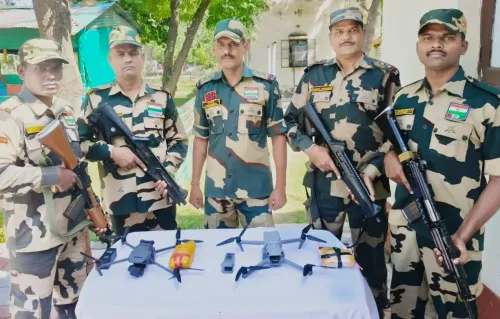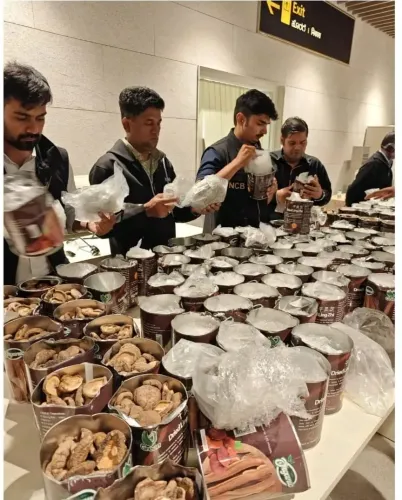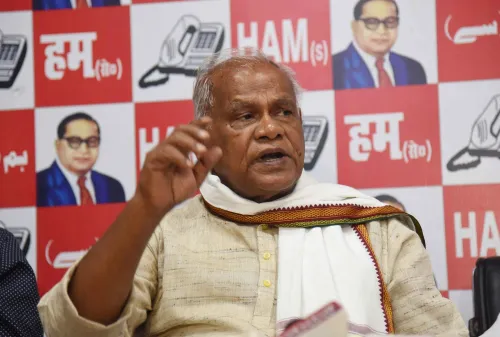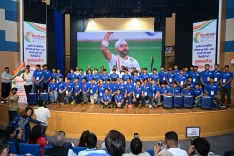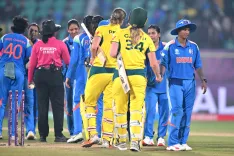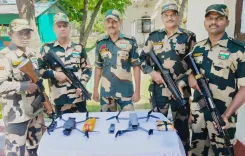Why Did Amir Khan Muttaqi Exclude Women Journalists from His Press Meet?
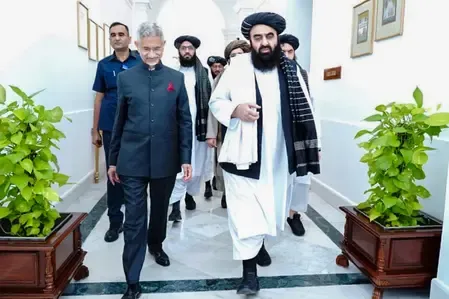
Synopsis
Key Takeaways
- Exclusion of women journalists raises serious concerns about transparency.
- Muttaqi's talks with EAM Jaishankar covered critical topics.
- Only a limited number of journalists were invited, highlighting selective access.
- The Afghan Embassy in Delhi is still under previous administration control.
- Criticism from press circles emphasizes the need for equitable media coverage.
New Delhi, Oct 10 (NationPress) The Foreign Minister of Afghanistan, Amir Khan Muttaqi, conducted a press conference at the Afghan Embassy in New Delhi on Friday, but notably, women journalists were excluded from participation, even though they had been informally invited to the event.
The decision to exclude female journalists prompted a significant outcry on social media.
Muttaqi arrived in the capital on Thursday and engaged in discussions with EAM Jaishankar, focusing on topics such as India’s support for the development of Afghanistan, bilateral trade, territorial integrity, people-to-people connections, and capacity-building, among other important issues.
However, the press conference held by Muttaqi at 3.30 PM was not accessible to a broader media audience and specifically barred women journalists.
Despite being a crucial diplomatic event, especially considering India's cautious position on the Taliban, where EAM Jaishankar announced the elevation of the Technical Mission in Kabul to the status of an Embassy, many journalists were neither notified nor granted access.
The Afghan Embassy in New Delhi continues to be managed by Charge d’Affaires Mohammad Ibrahimkhail, representing the former Ashraf Ghani administration, while consulates in Mumbai and Hyderabad are already under the control of the Taliban.
Journalists, who preferred to remain anonymous, stated that they were informed about the press conference only that morning.
Moreover, concerns have been raised regarding the limited media access, with only 15-16 journalists allowed to attend this event.
Reportedly, Ikramuddin Kamil, a Taliban official who has led Afghanistan’s Mumbai consulate since last year, personally contacted these selected journalists to extend the informal invitation.
In addition, female journalists have voiced their discontent over the exclusion of any women from the press event.
This selective outreach, alongside the selective invitation of journalists by Muttaqi’s media team, has drawn criticism from within journalism circles, who argue that such restrictions on coverage of a significant diplomatic development jeopardize transparency and hinder extensive media evaluation of India’s shifting relationship with Taliban leaders.


